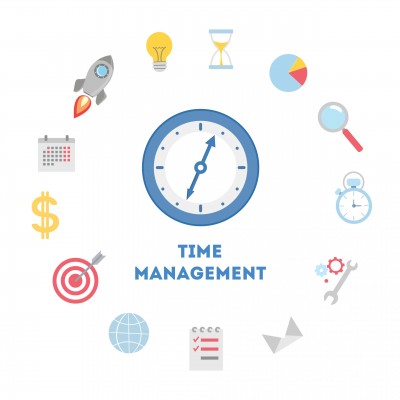A project without a deadline is a dream.
If you don’t qualify a deadline for your tasks, in my opinion, they will never get done, because other tasks will always find a way to prioritise themselves.
There is a great quote from Star Wars where Master Yoda says, “Do or do not, there is no try”.
This speaks more truth than you might first think. I believe that if someone tells me they will “try” to get a job done, then they already know that they probably won’t.
I much prefer “I will”, as this has more effort, commitment, and determination behind it.
You may also have heard the phrase: “any project will fill all the time it has available”.
If you decide a task will take a week to complete, but you allow yourself a month to get it finished, then it will take a month. If you think a task will take a week to complete but you give yourself 5 days, it will be done in 5 days.
As you begin to get closer to your deadline, the application of discipline and the fear of failure kicks in and makes sure you deliver what is expected of you.
Whatever space you have it will take up that time.
Why is it important to have deadlines?

Firstly, it means you don’t forget. It’s easy to drop tasks if they don’t have a deadline on them because they become unimportant, or your teammates may have forgotten that you were supposed to get it done too so there is no pressure of expectation.
Secondly, particularly if you are working as part of a team, it’s much easier to collaborate when you know who's got the ball. If you all know the deadline for each of your sections it makes workflow a lot more cohesive.
It also prevents organisational or personal failure/disasters. You’re less likely to let other people down.
Setting deadlines
When it comes to setting a deadline, you’ve got to be realistic; you have to plan in as much detail as you possibly can everything that needs to happen so that you can pin each part to a timeline.
Start with your SMART objectives – specific, measurable, achievable, relevant and time-bound. You can use these for any project.
The smarter the higher quality the outcome of the project is likely to be.
Next, you need to delegate appropriately, think about - Who, what, where, when, why?
- Who – Who is going to be in charge of each task.
- What – What tasks need to be done in order to maximise the outcomes of the project.
- Where – Where does everyone need to be in order to get the project done, can tasks be done remotely, or do some tasks require collaboration in a shared space.
- When – set your deadlines for each task.
- Why – Why is each task important to the outcome of your project?
In our business, we have an ongoing question of how we justify the development of new products/services.
It might sound like a nice idea to develop something new, but we need to establish a priority level and will it ultimately sell and become profitable for us?
Overcoming problems
It’s imperative that you factor in a margin of time for problems, mistakes, and delays.
You should remember what Donald Rumsfeld calls the “Unknown unknowns – the things we don’t know we don’t know”.
Remember to allow time for testing too, some things don’t always work the way you expect them too and issues will only arise in the testing phase of the project.
As you are establishing your deadline you need to collate the thoughts of everyone involved in the project.
It’s okay if you set yourself a deadline, but If your team don’t agree with it then they won’t deliver because it wasn’t in line with their needs for a deadline too.
Let your team take responsibility for the project but make sure to provide them with the resources they need. Do they have enough time, training, budget?
Once you have reached your decision you should document it for commitment and critical path reasons. Documenting your path and your deadlines helps you feel committed to the project in hand. As much as possible should be written down and accessible to the wider business.
Make sure to check up on your team along the way and make sure they are on track to meet their deadline and act accordingly. If they are on track, praise/reward them, if they are not on track, ask them what they need to get the job done, or alternatively, remind them of your expectations.
All these things allow you to make sure a project is delivered on time.
Tips for getting the job done

Whilst most of us are able to multitask, some of us better than others, sometimes your focus needs to be on doing the job at hand properly.
A study by Time magazine found that most people work for only 11 minutes before they get distracted, and it can then take them up to 25 minutes to return to a focused state of mind. This means that half the working day to some extent wasted.
There’s nothing wrong with some social time at work, but that level of distraction will sink your productivity levels and cause you to miss your deadlines.
I have a technique that works brilliantly for me.
It’s called “The Pomodoro Technique” - in short, it’s basically breaking up your day into 25 minutes chunks where you focus on one thing – all distractions off – no emails or phone notifications – then take 5 minutes to relax, get a coffee, check your emails, whatever you need to do then you move onto the next 25-minute chunk.
It works well for days where you have less time booked in meetings and more time to get on with work.
I urge you to give it a try if you want to increase your productivity and see how you get on!
If you liked this blog, check out others in my series below "Lessons from Leaders", where I give and discuss business advice I have learnt from others throughout my career so far!
Don't forget to subscribe to the JudgeService blog!








